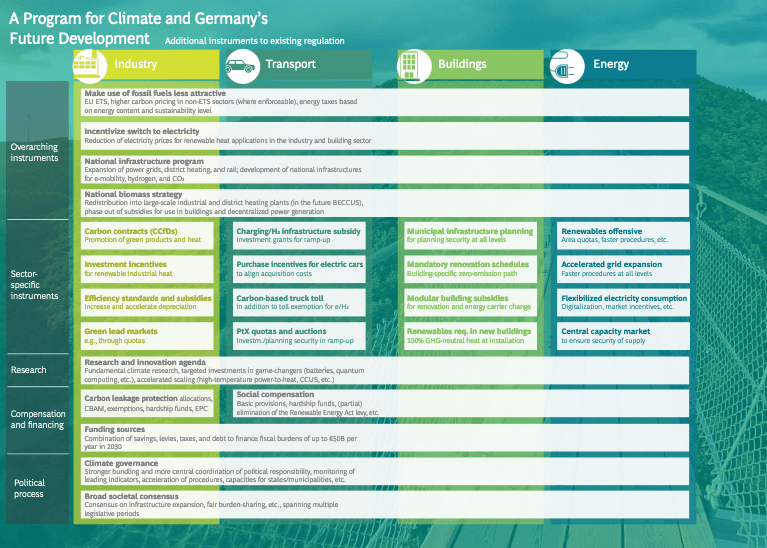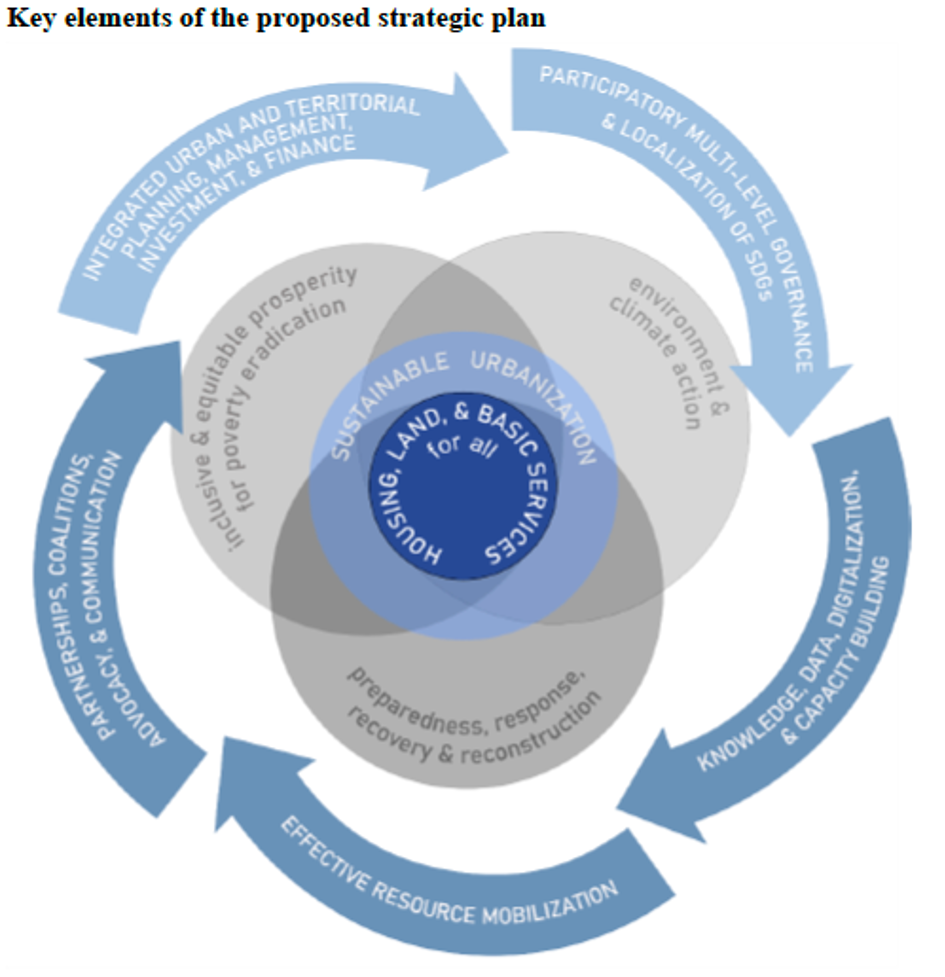Sustainable Germany (12): The industry's plan for a climate-neutral Germany in 2045
The powerful Federation of German Industries (BDI) published a program for climate and Germany's future development
On 21 October 2021 Social democrats, the Greens and Liberals officially opened negotiations for the building of a new government. In Berlin twenty thematic working groups started searching for common ground for the future governmental programme. It's quality is expected to reveal if the new coalition will meet at the lowest common denominator or if it aims at a big hit transforming the country and its economy towards climate neutrality.
Now that the likeliness of a new government with a strong climate policy is growing all stakeholder groups speak up to impact the outcome. Certainly, in a modern and highly industrialized country like Germany the Federation of German Industries (BDI) is among the most powerful voices. The BDI is working to ensure that Germany remains an industrialized country, one that is export-oriented and innovative. Germany's economy is based on a strong industrial core. Its success hinges on deep-rooted industrial value chains with more than 100,000 large, medium-sized and small companies from all sectors of the manufacturing industry, which together employ more than eight million people. Almost a quarter of Germany's gross domestic product (GDP) is generated by German industry. If industry-related services are included, this goes up to around one-third of GDP. Together with industry-related services, industry forms the growth core of the German economy. (source: english.bdi.eu/)
The BDI is not known as a frontrunner supporting the transformation of the German economy towards climate-neutrality. But times are changing. With major industries like the energy sector and automotive industry already in full swing entering the transformation climate neutrality is becoming key to keeping German industries competitive. Already the last Merkel government updated the Climate Change Act in 2021 raising significantly the country's climate targets to limit the effects of climate change. And now that a new federal government in Berlin may take include a 'climate government' the BDI as the most important lobby organization of German industries has to jump on the boat if it doesn't want to be left behind.
More than 150 experts of the Boston Consulting Group, the Federation of German Industries, and around 80 companies and associations contributed between March and September 2021 to the process leading on 21 October to the launch of the study 'Climate Paths 2.0 - A Program for Climate and Germany's Future Development'.[1]
The most important aspect about the study is that now all relevant stakeholders in the country take a goal oriented implementation of the Paris Agreement as a serious option and formulate not only their won option bus also practical proposals. This is not a guarantee for success but it is a precondition for a constructive solution oriented dialogue.
[1] https://english.bdi.eu/publication/news/climate-paths-2-0-a-program-for-climate-and-germanys-future-development/ - accessed on 22 October 2021
While the full text of the study is available in English and German following the above link I document in this post three illustrations.
The first illustrations summarizes an outlook on major changes needed by 2045 to make Germany climate-neutral (sources page 6-7).

The second illustration lines up steps to be taken as part of the Climate Path 2.0
For instance, the implementation of climate protection measures will require additional investments of around 860 billion euros by 2030, which the state, citizens and companies will have to raise. That corresponds to around 100 billion euros per year. Germany must undertake its greatest transformation in its post-war history. That is a lot but according to the BDI it is a path that can lead Germany to goal achievement.

The third illustration taken from the report lists instruments needed in addition to existing instruments (source: page 22-23).

For the full documentation of the study Climate Paths 2.0 – A Program for Climate and Germany's Future Development in German and in English please visit the website of the Federation of German Industries (BDI)
https://bdi.eu/themenfelder/energie-und-klima/klimapfade/
Policies and Governance for Resilient and Sustainable Cities and Regions









